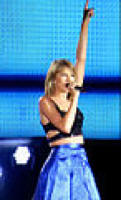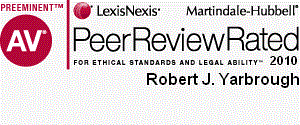Newsletter Issue 77 - July 2015
In this issue:
Copyright for 'Happy Birthday'
Taylor Swift round 2
Patenting of products that include computers
Ask Dr. Copyright ...
Dear Doc:
Some time ago, I wrote to you about the song "Happy Birthday" and
the law suit over whether restaurants and film makers must still pay
royalties if they sing it in public. Has anything new happened?
Signed,
Happy Birthdad
Dear Hap (can I still call you that?)...
Funny you should ask! That law suit is now about two years in, and
just this week, and right about as federal District Judge George
King (before whom the Doc has a case pending - full disclosure) was
about to hold a hearing about whether Patty Hill (who wrote the
words, but not the music) abandoned her copyright in the lyrics,
the
plaintiffs filed a motion containing some documents that they got
from the copyright owners, Warner/Chappell Music in discovery (a
year late, they say, after the court deadline, but hey, better late
than never...) In brief (get it?), the motion claims that the newly
produced documents prove that the words to the song are in the
public domain, and have been for a long time.
In 1927, the Cable Company produced the 15th edition of a children's
song book called "The Everyday Song Book". It included "Birthday
Song," which was sung to a melody for "Good Morning To You," a song
dating back to the 19th century, combined with Patty Hill's lyrics
for "Happy Birthday." That song appeared in editions dating back to
1922, which, the motion says, "proves conclusively" that "Happy
Birthday" entered the public domain no later than 1922. The song was
printed without a copyright notice unlike other songs in the
book. The lack of any copyright notice is critical, because under
the 1909 Copyright Act which was then the law, a published work had
to include the word "Copyright," the abbreviation "Copr., " or the
"©" symbol, or, the motion says, "the published work was interjected
irrevocably into the public domain."
So, you may ask, what does this mean for every mid-market restaurant
that sings bogus "Happy Birthday" songs? Nothing yet, but maybe,
some day soon, they, and the rest of us, may be able to sing "Happy
Birthday to You", free of the copyright royalties that have been
collected since 1922 by big, bad music publishers. More importantly,
some day soon, a bunch of lawyers may collect a gigantic legal fee,
while everyone who's ever paid for the right to sing "Happy
Birthday" will likely get, as the Doc's grandmother used to
say, "bupkis."
Have an urge to break into song in public? Better speak to the
attorneys at LW&H first, before you get in really big trouble. Until
then, keep on singing (but only in the shower, and only if members
of the public are not in that shower with you!)
The Doc
Taylor Swift's Turn to Capitulate (Sort of...)

In our last newsletter we wrote about Taylor Swift's open letter
to Apple, Inc. and the ensuing kerfuffle over Taylor Swift's
hypocrisy for the way she treated photographers covering her
concerts.
Just to recap, Swift's letter to Apple scolded the company for not
compensating artists during its customers' 3-month free Apple Music
trial. Apple, you will recall, backed off. But then photographers
lashed back. One photographer, Jason Sheldon, took Swift to task
over her restrictive "Concert Photo Authorization Form," which
granted Swift the right to exploit the photographer's images forever
without compensation to the photographer. Another photographer
pointed out that her most recent authorization form permitted her
company to destroy the photographer's equipment as punishment for
breaching the agreement.
Since our original article, the issue resonated with some media
outlets.
The Irish Times refused to print Taylor Swift photos.
Deputy picture editor [of the Irish Times] Brenda Fitzsimons wrote
that the terms and conditions are "exceedingly restrictive" and "not
feasible for a working newspaper and website." After reading the
contract, the paper said that it would rather not print any photos.
Likewise, several newspapers in Montreal:
the Montréal Gazette, La
Presse, Le Journal de Montreál, Le Devoir and Métro did not send
photographers to Swift's concert. Interestingly, the New York Times'
photographer was not subject to the same restrictive photo agreement
and one report indicated that the Washington Post was able to amend
Swift's agreement. Big news organizations have the clout whereas
individual photographers have none.
When the
National Press Photographers Association (NPPA) got into
the act it was Taylor Swift's turn to capitulate. At the same time
the NPPA began an independent review of Swift's agreement, it was
approached by her public relations team who told them they were open
to discussing the agreement's terms. Together with the NPPA and
various media groups, the parties revised and released a new
photography guidelines agreement. The new contract licenses back
some additional rights to photographers upon written permission and
dispenses with the equipment destruction remedy.
Does it address the concerns raised by photographers? Well,
Jason
Sheldon, who wrote the original open letter to Taylor Swift says
it's a good start but falls short. His analysis is beyond the scope
of this article but worth reading if you would like to learn more
about the profession of photographing entertainers and the practical
considerations that a photographer confronts when signing
boilerplate contracts.
Hostility to Computer Inventions Moves Past Computers

In
Alice v CLS Bank, the Supreme Court determined that an
abstract business method implemented by software entirely within a
computer was not 'patentable subject matter,' meaning that the
invention could not be protected by patent even though it met all of
the requirements for a patent; namely, the process was novel,
unobvious and had utility. The Supreme Court in Alice created a
test to determine when an otherwise deserving invention is not
'patentable subject matter' - (1) Are the claims of the patent
directed to an abstract idea, law of nature or natural phenomenon,
and, if so (2) whether the claim elements "transform the nature of
the claim into a patent-eligible application." If a claim meets (1)
and fails (2), then the claim is drawn to unpatentable subject
matter and is unenforceable.
This test sounds a bit vague, doesn't it? That sound you hear is
the inventors of the world scratching their collective head in
puzzlement.
In the year since Alice was decided, the lower courts have
interpreted Alice as severely limiting software patents and have
extended the principles of Alice beyond business-method patents and
beyond purely computerized processes to inventions where computers
are incorporated into a physical apparatus. The most recent example
is
Thales Visionix v USA and Elbit Systems. Thales sued the Federal
government for infringement of Thales' patent for a motion tracking
system before the Court of Claims, which hears patent infringement
cases against the Federal government. Thales alleged that the
Federal government and its contractors incorporated Thale's patented
system into the helmet tracking system of the F-35 Joint Strike
Fighter.
Applying the first half of the Alice test, the Court concluded that
the Thales patent claims at heart were addressed to a mathematical
formula to calculate relative motion and hence were abstract. The
Thales patent claims included physical elements of a tracking
system, including inertial motion sensors and a receiver to detect
signals from the motion sensors. The Court concluded that this
additional machinery was not enough to 'transform the nature of the
claim' and that the Thales patent claims were unpatentable.
What does Thales mean for the patent owner or applicant? It means
that the gaps in Alice and the other Supreme Court decisions on
patentable subject matter are slowly being filled in and that any
invention for which a computer is a central element runs the risk of
being declared invalid and unenforceable.

